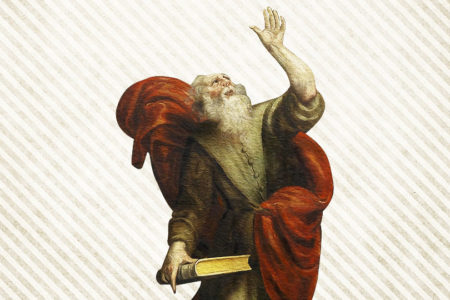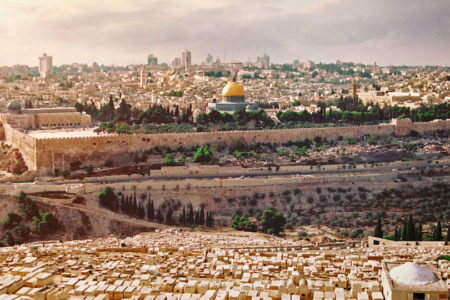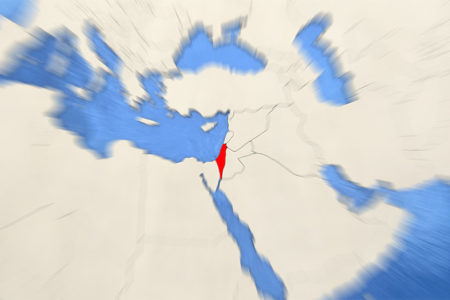The Christian’s Life
1 Thessalonians 5:4–11
“At the Rapture,” wrote Bible scholar John F. Walvoord, “Christians will see their loved ones who died and preceded them to heaven. It will also end their earthly problems, and they will be forever with the Lord.”1 For these reasons, the Rapture has been a blessed hope of the church for millennia. But those left behind will face a world of depraved humanity enveloped by misery and spiritual darkness—a time the apostle Paul called the Day of the Lord.
Paul told the Thessalonian church the Day of the Lord will strike unbelievers “as a thief in the night” (1 Th. 5:2). But he assured Christians they will not experience God’s wrath, which He has appointed for the God-rejecting world. First Thessalonians 5:4–11 instructs us to remember our deliverance, duty, and destiny as we await the Rapture, when God will carry His church to heaven.
REMEMBER YOUR DELIVERANCE
“But you, brethren, are not in darkness, so that this Day should overtake you as a thief. You are all sons of light and sons of the day. We are not of the night nor of darkness” (vv. 4–5).
The phrase but you, brethren establishes a contrast between believers and unbelievers. Christians are “not in darkness” (v. 4). The word darkness is a metaphor for sin and a depraved world that is morally and spiritually blind to righteousness and redemption. People without Christ live within this world’s demonic system, unaware of their needy spiritual condition and the divine judgment that awaits them unless they obtain forgiveness through Christ.
Paul told the Thessalonian believers they did not live in darkness; the Day of the Lord would not “overtake [them] as a thief.” All Christians will already have been raptured off the earth before the Great Tribulation begins (4:13–18). Jesus substantiated this fact by His promise to the Philadelphian church: “Because you have kept My command to persevere, I also will keep you from the hour of trial which shall come upon the whole world, to test those who dwell on the earth” (Rev. 3:10).
The language clearly reveals the church will not go into the Tribulation. The preposition from (literally, “out of”) carries the meaning of keeping the church out of the Tribulation. It will not go through any portion of it.
Paul also said the Thessalonian believers were “all sons of light” (1 Th. 5:5). The word all means no exceptions. All born-again believers possess life and light that will never be taken away. The phrase sons of the day simply means those who are redeemed live and function in the light of God’s provision.
Paul ended verse 5 with a strong affirmation of the Christian’s position: “We are not of the night nor of darkness.” Notice, he included himself. In other words, Paul and the missionary team had nothing to do with this world’s dark system or unrepentant sinners who were alienated from God.
REMEMBER YOUR DUTY
Paul reminded the Thessalonians that as sons of light, they were obligated to live in a way that pleased God: “Therefore let us not sleep, as others do, but let us watch and be sober” (v. 6).
The word therefore introduces a strong, emphatic, well-thought-out, and essential conclusion to verses 4–5: “Let us not sleep.” The word sleep is used metaphorically to denote indifference, insensitivity to spiritual things, or inertia in serving the Lord. The phrase as others do contrasts believers with unbelievers: “But let us watch and be sober” (v. 6). Alertness is the opposite of sleeping and should distinguish our character and attitude as we interact with society.
The word sober (literally, “self-controlled”) broadens the meaning of watch. Self-control refers to our desires and emotions and the part they play in guiding our behavior. Without self-control we will succumb to the world’s sinful lifestyles like a drunk who is out of control. Paul provided a simple illustration to make his point: “For those who sleep, sleep at night, and those who get drunk are drunk at night” (v. 7).
It is a fact that people instinctively sleep at night. So unsaved people are characterized as unconcerned about and uninterested in knowing God because they are asleep, living in a darkened spiritual state (cf. Jn 3:19–20).
Likewise, the unsaved “get drunk.” The word drunk appears twice in 1 Thessalonians 5:7 and simply refers to the process of drinking until one becomes drunk and remains that way. This is another illustration to drive home the sinfulness of people who do not care about God. They will be asleep in their darkened spiritual state when the Day of the Lord seizes them as a thief in the night.
Paul continued to emphasize that believers belong to the day and unbelievers belong to the night. He exhorted us to properly equip ourselves to live a life that glorifies God: “But let us who are of the day be sober, putting on the breastplate of faith and love, and as a helmet the hope of salvation” (v. 8).
1. “Be sober.” We are to maintain a habitual lifestyle of being calm and collected in our spirits, attitudes, and temperaments. We are always to be on guard while living in a world filled with turmoil, disorder, anarchy, lawlessness, and upheaval; and we do so by drawing on the inexhaustible riches of Christ’s strength, wisdom, and grace.
2. Put on the “breastplate of faith and love.” The idea of “putting on” reflects being clothed with faith and love. Not only are we watchmen but also warriors. We are to be equipped to stand against the wiles of the Devil and a hostile world ready to destroy us. We are to be “good soldier[s] of Jesus Christ” (2 Tim. 2:3–4).
Putting on the “breastplate” (armor, 1 Th. 5:8) is to be a once-and-for-all action. The armor must never be removed. This is something we do for ourselves. A breastplate covers one’s vital organs from neck to waist.
Faith refers to our commitment to God that protects our inner life, while love refers to our outward relationship with others.
3. The “helmet” refers to the “hope of salvation.” A helmet protects a soldier’s head. A damaged helmet can disable a soldier or even result in his death. In this context, the word helmet does not refer to salvation because the addressees are all believers in Christ. The “hope” here is a settled expectation of Christ’s imminent return to rapture the church. Then every believer will receive a glorified body, bringing salvation to its culmination.
REMEMBER YOUR DESTINY
Paul described the salvation Christ provides for every believer: “For God did not appoint us to wrath, but to obtain salvation through our Lord Jesus Christ, who died for us, that whether we wake or sleep, we should live together with Him” (vv. 9–10).
God Himself, according to His own will, has decreed that we will not experience His wrath during the Great Tribulation (Rev. 6:15–17; 14:10; 19:15). Why? Because He will rapture the church before the Tribulation (1 Th. 1:10).
The word but (5:9) provides a strong contrast to wrath. By His own action, God in time past had appointed all believers “to obtain salvation through our Lord Jesus Christ.” This divine calling requires individual responses to Christ in order to be effective (2 Pet. 1:10). That is, each person God calls must personally receive Christ in order to possess salvation. Salvation is acquired through Christ alone.
It was necessary for Christ to die voluntarily in order for you and me to obtain salvation. Notice, it was “for us” He died (1 Th. 5:10). Christ’s vicarious, substitutionary death was on behalf of mankind, and it is the sole reason believers in Him are delivered from God’s wrath.
The purpose of our salvation is to “live together with Him [Christ]” (v. 10). The phrase whether we wake or sleep refers to whether we are alive or dead. Regardless, we will be raptured when Christ returns for His church (4:16–17). Whether Christ is in heaven or on His throne in the Millennium or Eternal State, all believers will be living with Him. “Therefore,” wrote Paul, “comfort each other and edify one another, just as you also are doing” (5:11).
We are to “comfort” and encourage one another in our walks with the Lord, especially in times of discouragement or trial. We are to “edify” one another, building one another up in the faith. The word edify means to build or erect, as when putting up a house or building. Edification is to be a conscious, ongoing process until the Lord returns for His church.
Paul closed with an assuring word to the Thessalonians that he knew they were doing what was commanded. Are you a comforting fellow Christian, building others up in Christ during these difficult days? If not, why not start now?
ENDNOTE
-
-
- John F. Walvoord, “When Christ Comes for the Church,” Bible.org, January 1, 2008 <goo.gl/THRxfj>.
-









Brother David, once again I thank you for your article on Christian living. I particularly appreciate the fact you back up your statements with scripture, giving the correct meaning of the words. “Rightly dividing” the truth. Thanks be to God for the “gift” of teaching which the Lord has graciously given you. Part of this gift, I believe is being able to convey what the Spirit of God has taught you to others. Many brethren know and understand the scriptures but don’t have the gift of transmitting to believers. You make “truth” easy to follow and understand. Keep at the ‘good work’ my dear brother. I’ve been studying the scriptures for over sixty years but I love to read and refresh ‘by way of remembrance’ the wonderful teachings from the blessed precious Word of God. The Lord bless you and keep you and yours.
Best article I’ve seen yet on the Rapture; much thanks!